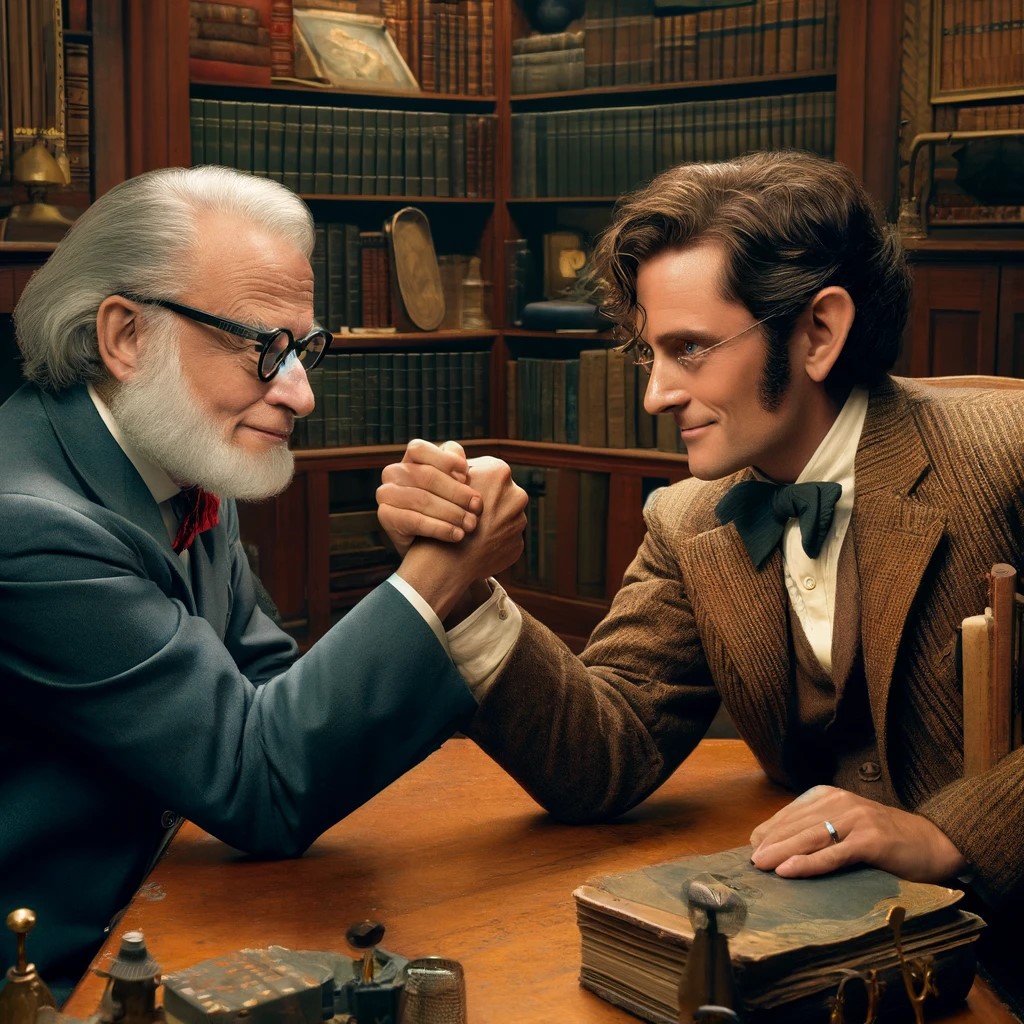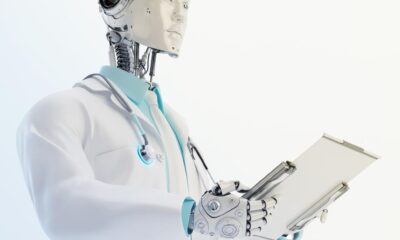Finance
Asimov and Tolkein – Intelligence vs. Wisdom

I ever have Posted that I found John Rawls’s argument that it is unjust to take advantage of one’s natural abilities to be inferior to the ideas of JRR Tolkein’s The Lord of the Rings:
Most of all, this kind of attitude reminds me of what Boromir says to Frodo when he tries to take the Ring of Power for himself:
It’s not yours, except by some unfortunate coincidence! It could have been mine! It should be mine! Give it to me!
For Tolkien, these are the words of someone whose mind has been corrupted under the influence of a demonic evil. But according to Rawls, this is only what justice requires, because of the unfairness of taking advantage of one’s own qualities. As far as I’m concerned, Tolkien has more authentic wisdom to share with the world than Rawls.
Today I’m going to expand on that theme and argue that Tolkien’s fictional writings also demonstrated greater wisdom in predicting what the future holds than the writings of the great science writer Isaac Asimov.
For starters, recently Tyler Cowen shared a list of predictions that Asimov made in 1981 about what we can expect in the coming decades. On that list we find the following:
1985 — World oil production will fall below global needs
1990 — North America will no longer be a reliable source of food exports
1995 – The countries of the world will meet (unwittingly) in a Global Congress to seriously address population, food and energy problems.
2000 — Under global sponsorship, construction of solar power plants in orbit will have begun.
2005 — A mining station will be operational on the moon.
2010 — The world population will peak at about 7 billion.
2015 — The dismantling of the world’s military machines will have made international war impractical.
2020 – The energy flow from solar space stations will have started. There will be nuclear fusion stations under construction.
2025 — The Global Congress will be recognized as a permanent institution. Improved communication has created a global ‘lingua franca’ that will be taught in schools.
2030 — The use of microcomputers and electronic computers will have revolutionized education, spawned a global village, and prepared humanity for the deep exploration of the solar system and plans for eventual movement to the stars.
As you will no doubt have noticed, dear reader, most of what Asimov predicted was not even approximately accurate (although Cowen gives him credit for being close to the mark on two of these points). I’m not writing this to bash Asimov, because his predictions were largely wrong. I am sure that Asimov could have made very convincing arguments at the time in favor of why things would have turned out as he predicted; arguments that I doubt I could have convincingly refuted. But as the great philosopher-poet Yogi Berra once said, predicting is difficult, especially when it comes to the future. I’m also not saying that I could have made better predictions in his place. No one can make such grand predictions over such a long period of time and do them well. The world is simply too complex, and unexpected developments that were not in your prediction and that will derail your prediction will always unfold.
And this is what I think is overlooked by extremely intelligent people like Asimov. He was no dummy – in terms of sheer brainpower I doubt I would hold a candle to him. And I suspect that Asimov would surpass Tolkien in that area as well. If we were to revive Asimov today and have him revise his predictions, I’m sure he would be able to come up with all kinds of possible solutions. afterwards explanations for why things didn’t turn out the way he expected. But the inability to realize it advance that this will be the case is the key failing here. Like me written elsewhere, the fact that you couldn’t possibly have known what outcome your actions might bring about is often itself something you could and should have known. And when making grand predictions, the fact that there will be unexpected developments that you can’t possibly foresee that will affect the way things unfold is also something you could (and should) have known.
So where does Tolkien figure into all of this? Well, I think Tolkien shared a wiser perspective through the character of Elrond in the first book of his trilogy, The Company of the Ring. As the council discusses how to deal with the threat of Sauron and the One Ring in Rivendell, the council slowly comes to the startling realization that the best path forward will not depend on the great achievements of mighty warriors like Glorfindel or mighty wizards like Gandalf , but of the simple courage of lowly hobbits. Elrond says to Frodo (and to everyone in the council):
‘If I understand all that I have heard aright,’ said he, ‘I think this task is assigned to you, Frodo; and that if you don’t find a way, no one will. This is the hour of the Shire people, when they rise from their silent fields to shake the towers and counsels of the Great One. Who of all the Sages could have foreseen this? Or if they are wise, why should they expect to know until the hour has struck?
It’s that last sentence that really gets to the heart of what I’m talking about here. Elrond not only recognizes that things unfolded in ways that even the wisest of men could not have foreseen. More importantly, Elrond also says that the unpredictability of how things would unfold is itself something that the truly wise would have already understood. And this shows the difference between raw intellect and true wisdom. In terms of sheer brainpower, I’m sure Asimov would have surpassed Tolkien. But wisdom is about more than just intelligence – and too often the pride that comes with great intelligence undermines the humility necessary for true wisdom. And just as William Buckley once said that he would rather be ruled by people selected from a telephone book than by Harvard faculty, I would rather live in a society guided by the wisdom of Tolkien than by the intelligence of Asimov.





